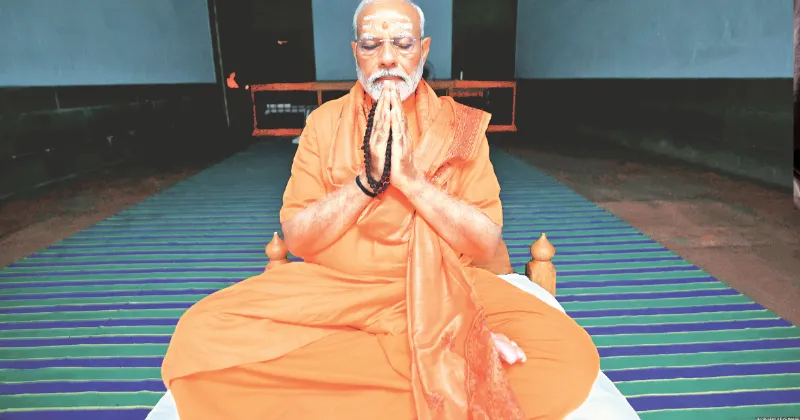Latest News
HOW TO ACHIEVE A TRUE SPIRITUAL RELATIONSHIP

The media has amply covered the said situation of people who are still recovering from the shutdown years of the pandemic, but a new beacon of hope also emerged that we need to be reminded of. It grew from the impulse to create a better life that wasn’t simply a return to pre-Covid life. There were many proposals revolving around that theme. I’d like to talk about one of the most significant: How to make your relationship spiritual in a meaningful, genuine way.
In our most intimate personal relationships, we search for love and acceptance, although many people find that this has been difficult to sustain in recent years. Everyone has an unloving side; everyone has a stubborn way of doing things. We bring mixed feelings into our interactions with everyone else, and this is simply the reality. Finding love and acceptance can turn into a very difficult challenge.
It would seem, then, that rising a step higher and achieving a spiritual relationship is even more challenging. The things that people look for in a spiritual relationship used to be fulfilled, not by someone else, but by God alone. God grants such things as race, forgiveness, unconditional love, pure ecstasy, redemption, and salvation. Can we really expect anything like this from the person who sits across from us at breakfast?
Yet today millions of people are on the spiritual path, and it is only natural that they wish to travel it with someone else, usually a spouse, partner, or family member. Let me discuss this aspiration and what it involves. Then a realistic judgment can be made about how to relate spiritually to someone who has the same mixture of positive and negative traits that we do.
In everyday life, relationships are based on the individual ego, the “I” with its stream of d demands, likes and dislikes, personal memories and conditioning, etc. The ego personality is based upon self-interest. It wants more pleasure and less pain. It wants its own way, not someone else’s. It craves satisfaction through appetite, power, status, and achievement. Seeing the “I” and its agenda, we need to face the fact that the ego personality is not the right vehicle for achieving a spiritual relationship. It is a square peg that will never fit into a round hole.
Fortunately, there is another level of relationship that is egoless. We experience it twice in our lives, usually, first when we are very young children and second when we relate to our young children. In this relationship, we suspend the demands of self-interest. We experience a range of things unknown to the ego, such as innocent delight, selfless love, trust, intimacy, a desire to cherish the other, and pure joy in someone else’s existence. Two beings merge in complete acceptance of each other.
Can these qualities emerge in a relationship between two adults? It would involve voluntarily leaving your ego at the door, which is effectively impossible. There are moments in a loving relationship where egoless experiences occur, of course. Spiritual qualities like trust, intimacy, and the desire to cherish another person are part of how we relate in private with those we love as opposed to how we relate to the outside, public world. But inevitably the ego enters in. “My way” leads to a clash with “your way,” and somebody has to give, which builds up tension, stress, arguments, and resentment over time.
So the real question is how to live without this split between selfish and selfless. Everyday relationships must contain an element of the selfish; spiritual relationships are as selfless as our relationship with a young child—that’s the ideal, at least.
The path to a spiritual relationship depends on one thing that may come as a surprise. The other person is irrelevant. Everything depends upon you because how you relate to yourself determines how spiritual you are towards others. Go back to the pure love and innocent delight we find with children. Nothing is expected of them. It is enough that a child exists; we place no demands on them to give us what we want. Therefore, no ego agenda is involved. Now look at yourself. Do you accept and love yourself simply because you exist?
I am not looking for a yes or no. Everyone experiences moments where being here is enough. We feel inner peace, contentment, and acceptance without even thinking about it. Where does this selfless state arise? Oddly enough, in deep sleep. When the mind’s restless activity and the ego’s ceaseless agenda are suspended at night, what remains is pure consciousness.
You will likely be skeptical about that assertion because deep sleep is without personal experience. Yet we wake up refreshed and renewed, and traces of sleep’s peace and contentment linger in the morning if we had a good night’s sleep. I bring this up to point out that everyone has journeyed to the selfless state of pure consciousness many, many times. The question is how to reach the same state while awake.
This is where meditation comes in because we don’t fall asleep in meditation. Instead, we relate to ourselves without an agenda. We go inside to meet the selfless state, which isn’t blank or empty. It is the meeting point where existence is enough and consciousness is enough. In meditation, as the practice matures, the ego’s agenda becomes more and more pointless. If I am enough in myself, I don’t have to make demands on anyone or anything else.
THE VIEWS EXPRESSED BY THE AUTHOR ARE PERSONAL
DEEPAK CHOPRA The writer is MD, FACP, FRCP founder of the Chopra Foundation, a non-profit entity for research on well-being and humanitarianism, and Chopra Global






















